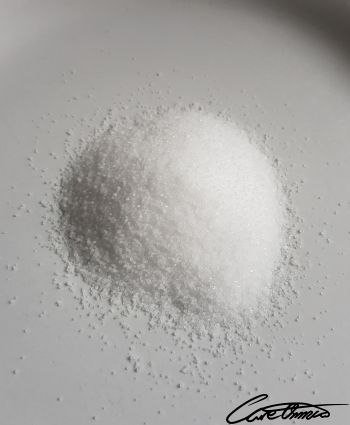What Is Iodine & What Foods Can I Find It In?

Iodine is a trace mineral and a very important micronutrient.
It’s responsible for regulating thyroid function and is essential for the synthesis of thyroid hormones.
Iodine deficiency is a major health problem and can cause severe problems.
Your body cannot produce iodine, so it needs to be provided in your diet.
Table of Contents
Iodine Is Essential
Iodine is a micronutrient that is an essential component of the thyroid hormones, thyroxine, and triiodothyronine. (source ◳)
The thyroid hormones are important for brain development and proper brain function throughout life. (source ◳)
You can find other benefits of iodine in Iodine, I: 7 Research-Backed Benefits .
Iodine Deficiency, A Large Problem
Iodine deficiency is a significant public health problem.
One reason for iodine deficiency is when the soil is poor in iodine.
It will cause a low concentration of iodine in food products and lead to insufficient iodine intake in the population. (source ◳)
Iodine deficiency can cause grave problems. It’s not causing a single disease. Iodine deficiency causes many disturbances in the body. (source ◳)
Iodine deficiency is the leading cause of preventable fetal brain damage. Iodine deficiency in pregnancy can lead to hypothyroidism and impaired infant neurobehavioral development.
An inadequate intake of iodine will lead to insufficient production of the thyroid hormones, which adversely affect the muscles, heart, liver, kidney, and developing brain. (source ◳)
How To Get Iodine
Daily consumption of salt fortified with iodine is an effective strategy for the prevention of iodine deficiency. (source ◳)
The main source of iodine through the diet is the consumption of foods that are fortified with iodine, like salt, dairy products, and bread.
The best natural sources where iodine is abundant are seaweed, such as kelp, nori, kombu, and wakame, but can also be found in seafood. (source ◳)
Foods You Can Find Iodine, I In
You find iodine in many foods, mostly in fortified foods.
Examples of food sources include
Foods in our nutrition tool
You can find regularly updated, top ranked lists of foods for over 200+ nutrients in our nutrition tool.
If you are interested in what foods contain the most iodine, we recommend you visit our tool.
Here's our top ranked list of foods that contain Iodine, I.

